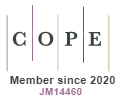Contradictions between written language and alphabetic code: What teachers reveal about the appropriation of writing by children in early childhood education
DOI:
https://doi.org/10.5585/dialogia.N31.11529Keywords:
Teacher training. Early childhood education. Appropriation of written language.Abstract
The article is part of a qualitative research (2017) developed in a public school of Early Childhood Education located in the interior of the State of Minas Gerais. It aims to analyze what six teachers think about the process of appropriation of writing by children of 4 and 5 years, through semi-structured interviews as a methodological procedure. The study is based on the assumptions of Vygotsky and his collaborators and contemporary authors such as Arena, Jolibert, Foucambert end Mukhina. The results show the absence of a theoretical-methodological basis to teach writing as a moving language, in different uses and functions, revealing the contradictions between teaching written language and teaching alphabetic code. It is concluded that it is necessary to train teachers who reflect their roles as mediators of the written culture, focusing on the training of children authors and readers in which written language is the source of child development. This demands new research that explains how this process is carried out and its relation with child development.Downloads
References
ARENA, D. B. As letras como unidades históricas na construção do discurso. Cadernos Cedes, Campinas, v. 33, n. 89, p. 109-123, jan./abr. 2013.
BORTOLANZA, A. M. E. O professor: um leitor escolarizado. 2005. Dissertação de Mestrado, UFMS, Campo Grande, 2005.
FOUCAMBERT, J. Modos de ser leitor: aprendizagem e ensino da leitura no ensino fundamental. Curitiba: Editora UFPR, 2008.
JOLIBERT, J. Formando crianças leitoras. Porto Alegre: Artmed, 1994.
MELLO, S. A. Infância e humanização: algumas considerações na perspectiva histórico-cultural. Perspectiva, v. 25, n. 1, p. 83-104, 2007.
MUKHINA, V. Psicologia da idade pré-escolar. São Paulo: Martins Fontes. 1996.
VIGOTSKI, L. S. A pré-história do desenvolvimento da linguagem escrita. In: Obras Escogidas. v. III. Madri: Visor, 2000.
VIGOTSKI, L. S. Imaginação e criação na infância. São Paulo: Ática, 2009.
VIGOTSKI, L. S. A construção do pensamento e da linguagem. São Paulo: Martins Fontes, 2010.
Downloads
Published
How to Cite
Issue
Section
License
Copyright (c) 2019 Dialogia

This work is licensed under a Creative Commons Attribution-NonCommercial-ShareAlike 4.0 International License.






